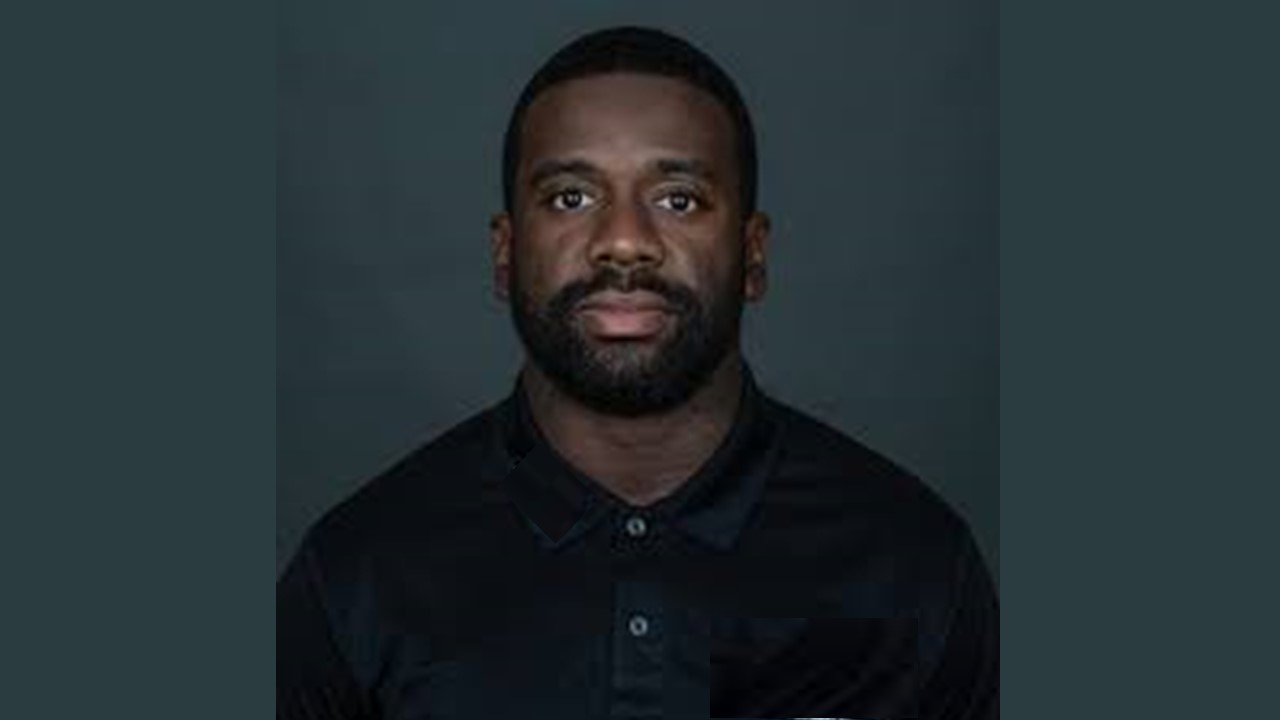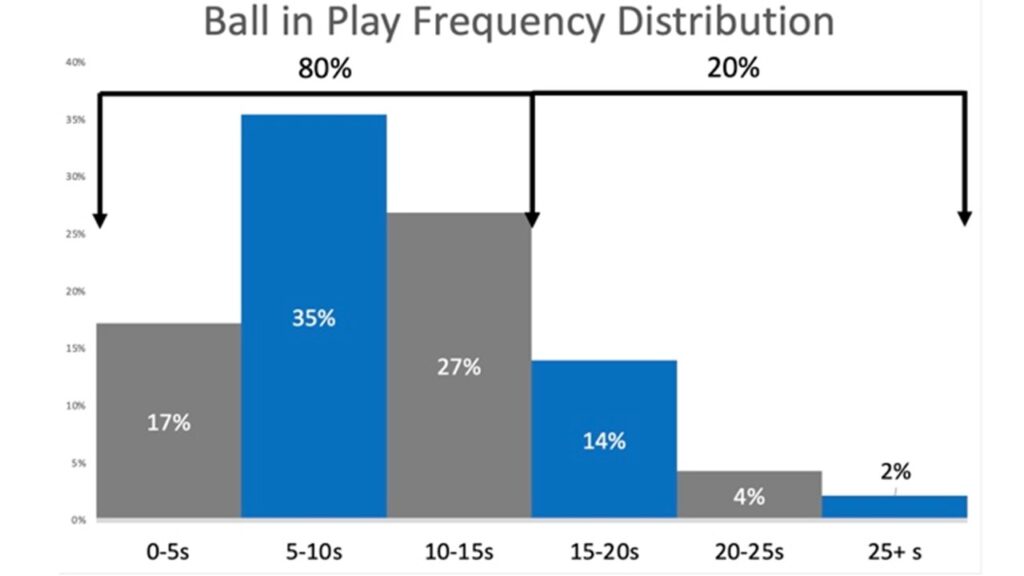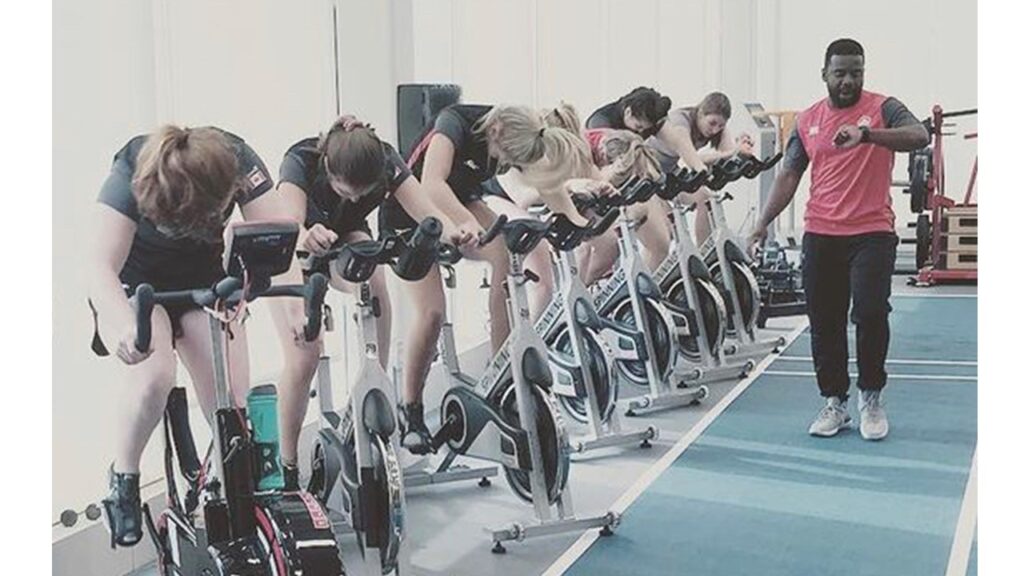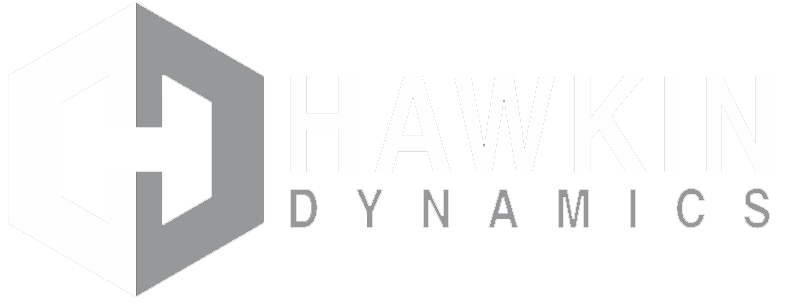From American Football to Rugby: A Practitioner’s Journey

Kris Robertson began his professional athletic career in 2013 by being drafted 11th overall by the Winnipeg Blue Bombers in the Canadian Football League (CFL) draft. Unfortunately, his career was cut short as a result of a knee injury. After a period working as an Assistant S&C Coach with the Toronto Argonauts in the CFL, Kris began at the Canadian Sport Centre Ontario working with Rugby Canada. Kris is responsible for the physical development of the Senior Women’s National 15’s, as well as the Women’s Rugby Canada Development Academy.
In this interview Kris answers four questions and shares his insights into how he works with the athletes and how the program has overcome training challenges as a result of COVID-19 shut downs in Canada.
CSCA – As a former professional football athlete, what key skills and life lessons were you able to bring to your role at the CSIO working with Rugby Canada?
KR – I just think one of the biggest advantages I can bring to my athletes is the fact that I have “been there and done that”. Meaning, I know what it takes to take it to the next level as it is something I had to go through. Going from high school to university is a big jump and going from university to the professional ranks is an even bigger jump. Some lessons I like to tell my athletes:
- Be a PhD in your sport, the development of your physical attributes accounts for a very small portion of your play at the professional ranks (~10-15% [anecdotal]). Everyone is strong, fast, fit, and skilled. A big emphasis on the tactical and psychological aspects becomes very important.
- You have to work hard to get there, but you have to work harder to stay. As I stated above a big portion of the early development process is building your physical attributes, that consumes a great deal of your time and requires a high level of effort. However, the mental aspect of the game requires a lot more effort and can become overwhelming, this is where the real work begins.
- You are going back to the “bottom”, you won’t be the best person on the team. Understand you are going to have to work your way back to that level, having a growth mindset becomes important.
Those are just a few conversations I have had with my athletes. The ability to call on my own experiences and the different trials and tribulations that I went through playing sports has allowed me to connect with my athletes.
CSCA – There has been a lot of rugby on TV over the past several months with matches and tests being played in Europe and the Southern Hemisphere, but none being played in Canada, how have you kept the athletes motivated to train?
KR – The fact that the rest of the world seems to be off to the races and we seem to be at a standstill here in Canada has definitely been challenging for all the athletes I work with from the academy athletes to our senior women’s 15’s athletes. In saying that, I think our staff has done a great job a great job in dealing with our current situation. I feel it starts first with our program lead and head coach Sandro Fiorino, he has really led the charge and got us on a curriculum to help us all (staff, and athletes) get organized through these turbulent times. We have weekly calls in which we have various challenges that will cover the technical, tactical, and psychological aspect of the game.
With our 15’s girls that nugget of the world cup in September has helped keep them very engaged, they are all working hard. As for our academy athletes they have done a good job by keeping each other accountable. They do this by working out in groups whether that is virtually or small groups, they also submit weekly workout videos to me via an on-line classroom. I have found this has helped them stay engaged. The staff at our academy have done a good job in creating an environment that is engaging by all the various teachings that we provide on a weekly, monthly, and yearly basis. We are happy with where we have come in the past 3 years, but we understand that there is still more to do.
CSCA – Coming from the sport of football, what did you initially find challenging in working with rugby athletes?
KR – Football and rugby are very similar but also very different at the same time. On the surface, they are both collision sports, they require teamwork, and they are very fast paced. When I got into rugby the first thing I noticed was the difference in the bio energetic demands of the sport. Rugby players need to be very fit aerobically whereas football players not so much. Although rugby is an intermittent sport, the continuous play of the ball can put a greater demand on the metabolic system. Figure 1 shows ball in play data I collected from a few of our academy games, if you look at it 80% of the ball in play is 15 seconds or less. On the contrary football plays last anywhere from 4-6 seconds with 20-40 seconds between each play.


Needless to say, I found myself navigating how to train the aerobic system my first year, rugby players like to run, and football players don’t. Having to understand that my athletes like to go for 5k runs, and 2km time trials is something that I had to learn to navigate around when developing a program. Also not having played rugby outside of a couple years in high school I really needed to get into the mind of a rugby player, this was challenging and is something I am still learning to this day.
CSCA – You have a good social media presences, have you focused on this because of the ages of the athletes you currently work with?
KR – Connecting with my athletes in one thing but there are also a few other reasons. I grew up in the social media era, in my young teenage years to adult hood I have watched the boom of the social media era. From YouTube, Facebook, Twitter, Vine, Instagram, Snap Chat and now most recent Tik-Tok and Club House, I grew up with all these social platforms. It’s only natural I would have these different social media platforms.
Social media has become the new way to reach out to coaches, it has now shortened that process and we can now talk to coaches across the globe in a matter of seconds. I use social media not only to meet coaches, but to share what I am doing to help start conversation. In the past year social media more than ever has connected coaches to levels we have never seen. From conferences, debates, to the sharing of information and best practices. Social media has become like a little mini resume, I have a colleague that went for an interview and was asked what his social media handle was. Social media is a major part of our profession and we just need to learn to navigate it.
As for connecting with my athletes it has really helped me stay “current” with the athletes, I have found it is a great conversation starter for example “Hey Kris, did you see that post on IG?”. Simple things like that, or athletes teaching me how to use Tik-Tok and snap chat (ha ha). Social media can help bring everyone together but in the same breath you really need to have a good filter as there is a lot of fluff out there.






